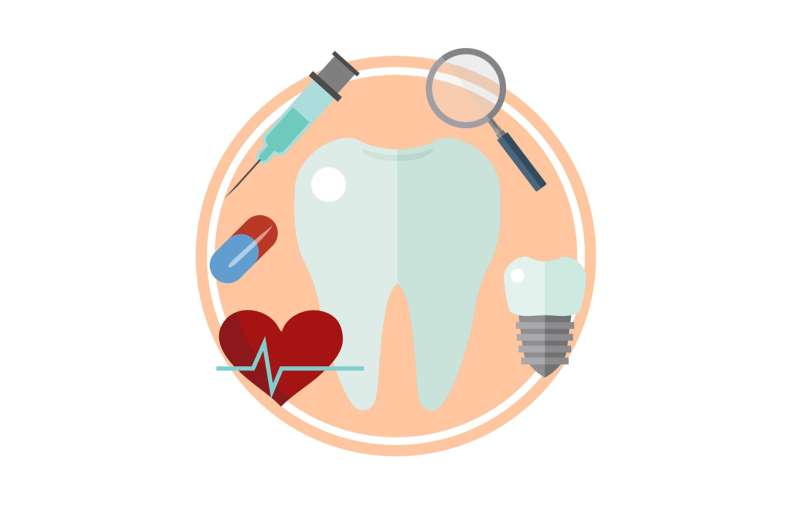
The COVID-19 restrictions preventing dentists in England from providing face-to-face treatment required some to unnecessarily prescribe antibiotics for dental pain, a study by University of Manchester researchers has shown.
The results of the study were based on an analysis of NHS dental antibiotic prescribing data in England from before and during the pandemic, and an online survey in 2021 of 159 NHS dentists across England.
The paper is published in the British Dental Journal today (October 28) ahead of World Antimicrobial Awareness Week (18–24 November) which aims to tackle the global emergency of antibiotic resistance.
Lead author Dr. Wendy Thompson a practicing NHS dentist and clinical researcher at The University of Manchester said, “We show that COVID-19 restrictions caused widespread frustration among dentists who know that procedures rather than prescriptions are generally the safest and quickest fix for toothache.
“Though dental infections can be dangerous, most toothache is not caused by infection, so is not helped by antibiotics at all. Even small infections are best treated without antibiotics.”
When lack of high-grade PPE masks meant initially dental practices were forced to close, NHS officials told dentists to perform diagnosis and management remotely by phone.
It was only rarely that dentists could refer patients to specially set up urgent dental centers (UDCs) for hands-on treatment.
Half of the dentists surveyed from across England’s regions reported that, during the first phase of COVID-19 restrictions from March to June 2020, their referrals to a UDC had been rejected because the patient had not first taken antibiotics.
One dentist told the research team, “I lied a lot. When patients had pulpitis [toothache caused by inflammation not infection], I told them to say that I’d prescribed antibiotics as a means of being seen at the Hub. Antibiotic would not have been appropriate.”
Another said, “Patients were refused to be seen at an urgent dental center for treatment until they’d had antibiotics.”
“As the dental profession contributes around 10% of antibiotic prescribing across NHS primary care, dentists are acutely aware of the need to play their part in tackling resistance by prescribing antibiotics only when strictly necessary and appropriate. So being forced to prescribe them when not indicated is intensely frustrating because they know the distress that unresolved severe toothache causes to patients, and they know that dental infections treated only with antibiotics are very likely to return and be harder to treat next time,” says Dr. Wendy Thompson.
The study also found:
- In the pandemic’s first year, antibiotic prescribing increased by 12.1% in London (the lowest increase) and 29.1% in East of England (the highest).
- Fewer than half (68/140) of respondents were confident remotely diagnosing and just a quarter (35/140) were confident remotely treating patients with acute dental pain or infection.
- Over three-quarters (109/139) reported patients requesting antibiotics more often during the first year of the COVID-19 pandemic than the previous year.
- Some of the dentists suggested remote management of patients during the pandemic had had a lasting effect on patient expectations about the ability to use antibiotics to avoid a dental procedure.
Dr. Thompson said, “This study highlights that during the pandemic, restricted access to face-to-face dental care was directly linked to much higher antibiotic prescribing than in previous years.
“That puts people at increased risk from adverse effects of antibiotics, such as upset stomach, severe allergy and of course the development of antibiotic resistance.
“As the dental profession contributes around 10% of antibiotic prescribing across NHS primary care, dentists are acutely aware of the need to play their part in tackling resistance by prescribing antibiotics only when strictly necessary and appropriate.
“So being forced to prescribe them when not indicated is intensely frustrating because they know the distress that unresolved severe toothache causes to patients, and they know that dental infections treated only with antibiotics are very likely to return and be harder to treat next time.”
She added, “Understanding the essential need to keep antibiotics working, and their futility for many acute dental conditions, should be fundamental knowledge for everyone involved with planning, managing and delivering dental services.
“This includes availability of dental procedures for people with toothache or infection, by ensuring urgent dental care teams are included as essential healthcare services with access to appropriate PPE during any future pandemic.”
Source: Read Full Article
